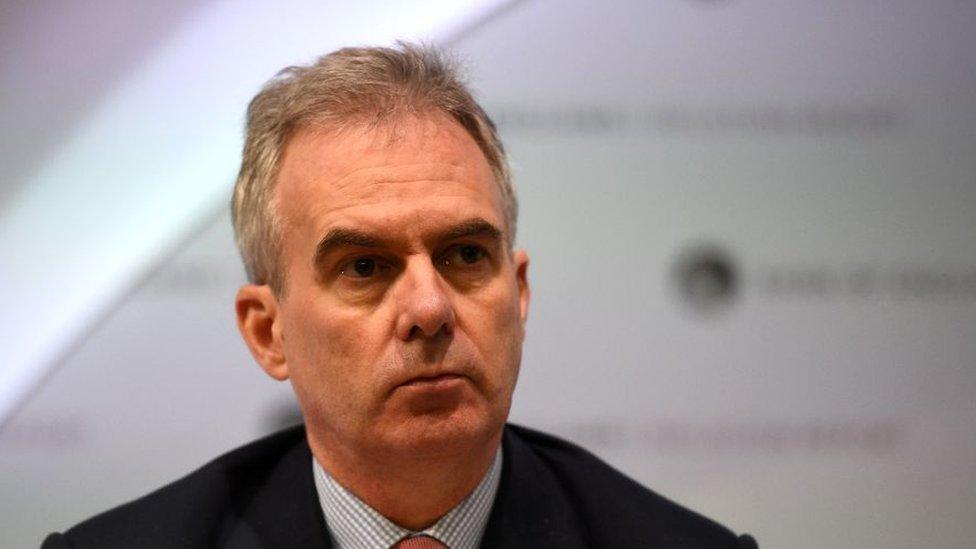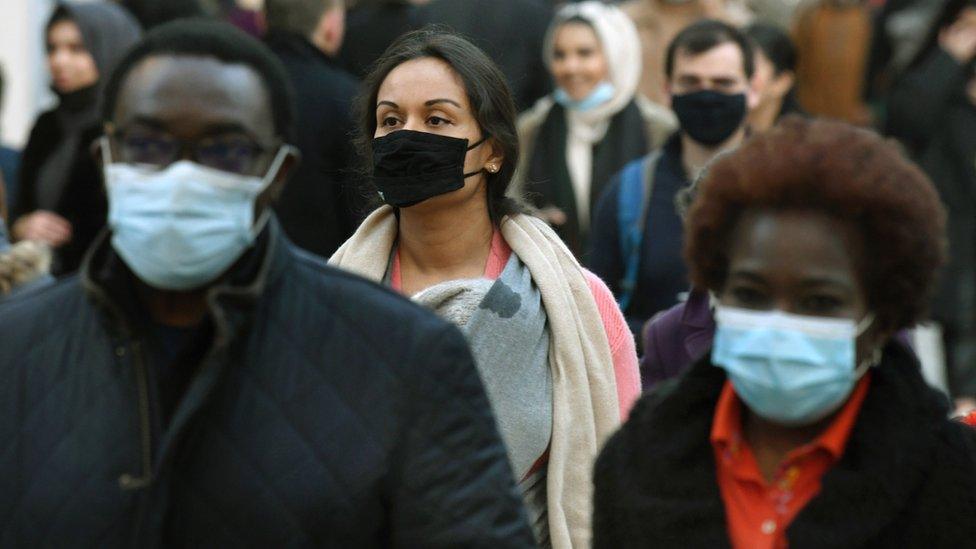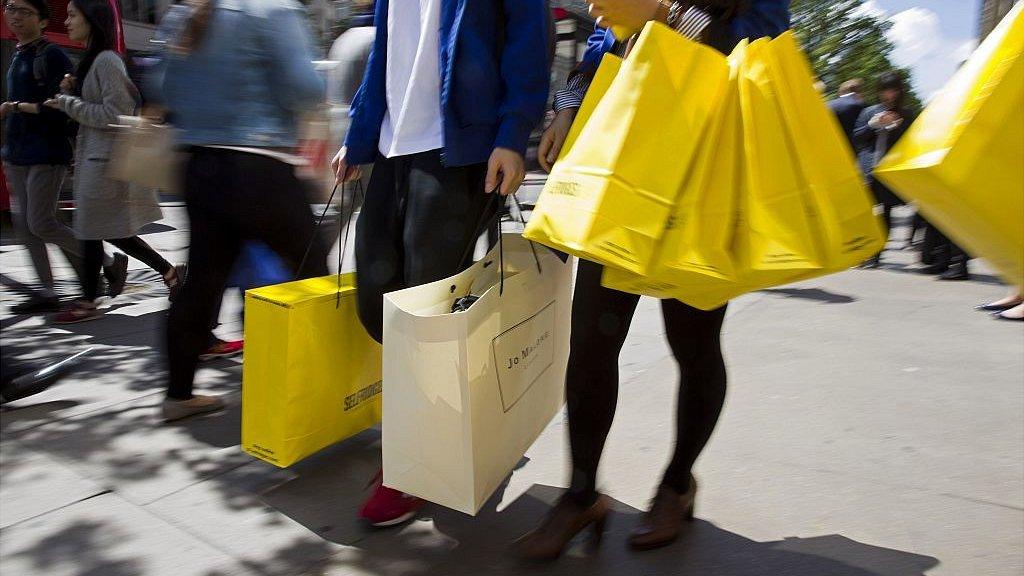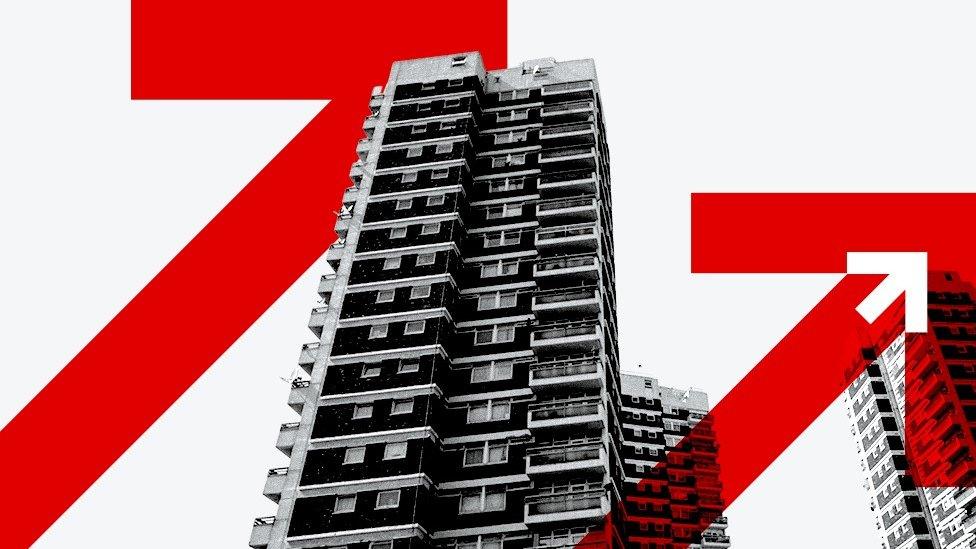Inflation spike temporary, says BoE deputy governor
- Published

The Bank of England should not relax its efforts to boost the UK's economy despite the forecast of higher inflation this year, deputy governor Ben Broadbent has said.
The pick up in the rate of inflation, which the Bank expects to hit more than 3%, is mainly due to temporary rises in goods prices, he said.
Economic uncertainties around the pandemic remain, he added.
But some Bank policymakers have suggested a change might be needed.
Last week, Michael Saunders and deputy governor Dave Ramsden - who are both members of the Bank's Monetary Policy Committe (MPC) - said that the time for tighter monetary policy might be approaching.
But another MPC member, Jonathan Haskel, said reducing support for the economy was not the right option for the foreseeable future and Catherine Mann, who joins the MPC on 1 September, has warned against curbing stimulus too soon.


Rising bills have prompted some headlines warning of a return to an era of high inflation and rate rises.
"Not so fast" is the message from one who actually matters.
The deputy governor may be just one of the eight (usually nine) strong panel that sets interest rates.
But he's usually a good barometer of the mood in the Bank of England.
What we're seeing, he indicates may be an adjustment: supply catching up with demand as the economy opens.
There are physical bottlenecks, issues with production and transport of internationally traded goods.
We've focused on spending on goods - a new TV say - rather than services - cinema trips - under lockdowns.
And firms have had to pay more to recruit staff as furlough limits jobseekers.
These, Mr Broadbent says, should settle. The spike in inflation may be temporary.
But it takes interest rates a year or two to have an impact on inflation, and that's the horizon policymakers actually focus on.
What happens then, he says, depends on the labour market.
Will today's higher inflation and skills shortages allow workers to secure sustained pay rises, putting pressure on prices?
Or will the end of furlough keep a lid on wages with an influx of jobseekers?
There's much uncertainty - but our pay packets may hold the key to the future of interest rates.

The UK's central bank has two main tools to control inflation, which is measured by how fast the prices of goods and services rise.
One of those tools is setting interest rates, which the Bank does by controlling the rate it charges banks to borrow money.
The second tool it uses is creating money digitally to buy government and corporate bonds, which is debt issued by the public and private sector, traded as assets. This is called "quantitative easing".
The Bank currently has a bond-buying target of £895bn.
Mr Broadbent said on Thursday that now is probably not the right time to start paring that support back, despite the recent pick up in inflation.
"While we know it's going to go further over the next few months, I'm not convinced that the current inflation in retail goods prices should in and of itself mean higher inflation 18 to 24 months ahead, the horizon more relevant for monetary policy," he said.
Most of the inflation in goods prices is down to oil price rises, he said, which is likely to "fall away" in the early part of 2022.
Pressure will probably remain on goods suppliers even if some of the heat comes out of consumer demand, and there are still risks to global supply chains from Covid outbreaks.
Mr Broadbent's comments came as the European Central Bank decided to hold interest rates as they are and gave forward guidance that rates would probably be lower for longer.
The Bank of England will give its next decision on UK interest rates on 5 August.
Related topics
- Published1 July 2021

- Published16 July 2021
- Published1 November 2022

